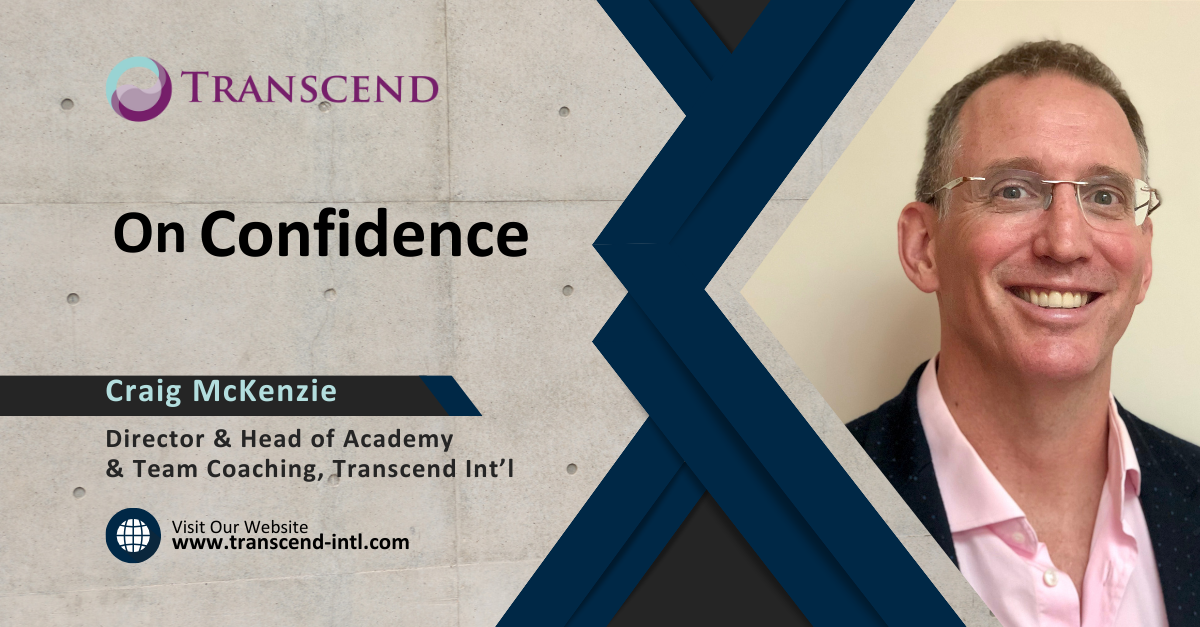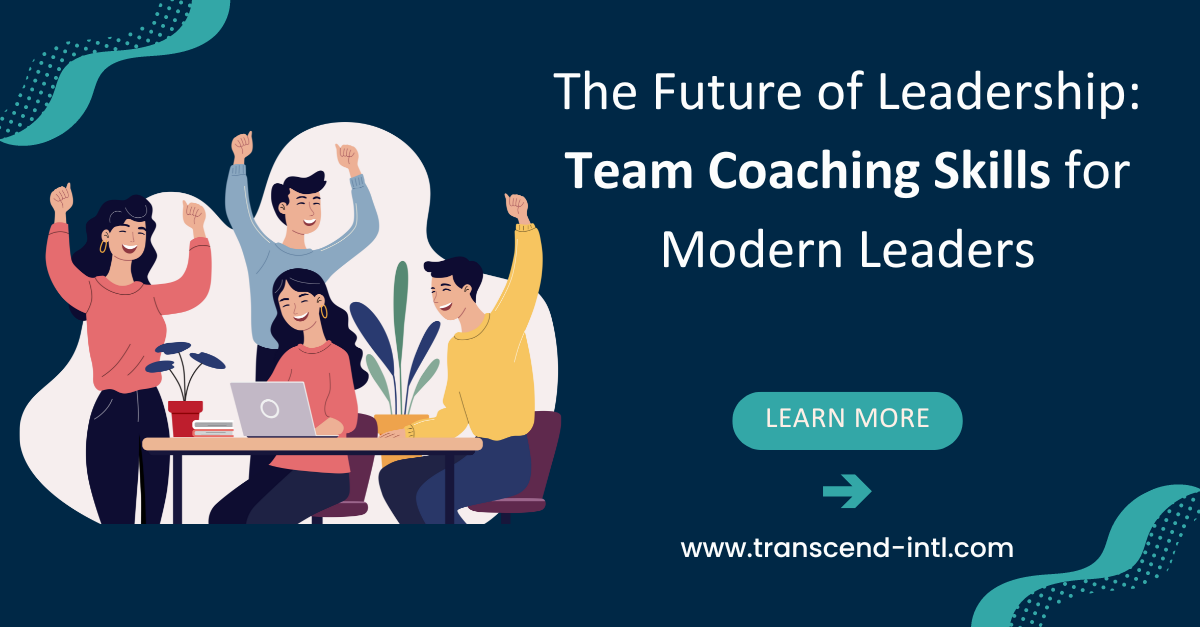Videos
All Videos

1:15

4:50






0:16


2:01







What if confidence wasn’t something you simply “have” or “don’t have” — but a relationship you could build and strengthen every day?
In the Becoming Confident programme, you’ll discover how to transform that relationship, so it fuels you in every moment — in how you think, speak to yourself, connect with others and see yourself.
By the end, you won’t just understand what truly fuels your confidence — you’ll know how to sustain it and stand on a grounded sense of self that never leaves you.



In a world filled with constant demands, increasing complexity and rising expectations, many are looking for a way to stay present, calm and connected. Coaching and at a deeper level coach training can be the answer you have been searching for. These approaches help you transcend your current circumstances and move you away from a way of doing to a way of being, which changes everything – in how we lead, live and impact others. Whether you’re a parent, a team member, a partner or a business owner, learning to communicate with intention, presence, curiosity and compassion can fundamentally change the quality of your relationships and your impact.
Our CEO, Tony Dickel, who has spent almost two decades working alongside global leaders as a coach, reflects on why coach training should not be seen as something reserved only for those with “coach” in their job title. In this thought-provoking video, Tony shares how coach training helps people navigate life’s complexity—not with force, but with presence. The real transformation lies not just in what we do, but in how we show up. And that makes all the difference.
In this video, Tony explores powerful questions that many of us—whether in professional roles or personal relationships—encounter on the path to growth, and how coach training can equip you with the tools required to navigate them with clarity and intention.
Coach training equips us with strategies and tools to help us shift from unconscious patterns to conscious presence. It supports us in becoming the kind of person we aspire to be, regardless of our role — whether at work, at home or in our community. In a time where complexity is the norm, learning how to pause, reflect and respond with intention is not just useful — it’s vital!
We invite you to reflect on how coach training can support not just your performance, but your growth as a human being. It’s not about having the title of “coach”—it’s about having the capacity to relate, lead and live with presence and purpose.
Watch full-length video, here.
This succinct yet profound statement captures the essence of human experience and could not ring any truer than it does in this context, as we discuss the quality of ‘acceptance’ and how to instil it in your life. Acceptance does not mean that you remain passive to life’s events as they occur and be apathetic to everything coming your way without ‘trying to turn the tide’ in your favour. It simply means not adding resistance into an already complex equation. Resistance to what is happening in the ‘here and now’ will simply compound your – seemingly unbearable – problems, creating a sense of ‘stuckness’ leading to sub-optimal choices of action.
Once we realise that predictions of ‘dreaded dangerous outcomes’ driving thoughts, emotions and then, behaviours, are not, in fact, as dangerous as the consequences of the limiting behaviour itself, we can then ‘let go’ of the self-limiting experience and take the action that moves us forward. Developing this quality of ‘letting go’ can have a profound effect on your life, helping you feel lighter and not react to everything that ‘happens to’ you, mentally or emotionally. Remember thoughts are not facts and emotions are not ‘me’.
They are fleeting and if you can observe them as a ‘witness’ (just as you did when you were curious about the same event) and let them go, you will be able to focus on more important things in your life, such as your goals and aspirations.
How Would You Define Confidence?
In this video, Craig McKenzie, lead facilitator of Becoming Confident — shares why most of us have been looking at confidence the wrong way.
We often treat it like a possession: something we either have enough of or need to get more of. But what if confidence isn’t something you have?
Craig invites you to see it as a quality—one you can cultivate, shape to fit who you are, and rely on in any situation.
That’s why we bring you Becoming Confident—our newest life-changing programme. Practical, affordable, and transformative, it’s designed to help you build the kind of confidence that stays steady and sustainable, especially when it matters most.


As an experienced leader himself and having worked with numerous leaders for almost two decades in his role as a coach, our CEO Tony Dickel shares his views about the role that confidence plays in aiding a leader to show up at their best and then helping others to bring their best, to their work and lives.
In this video, Tony addresses some challenging questions that leaders have or may face along the way.
Watch the full-length video here
We all face challenges of confidence in different areas of our lives and at times, even in the areas we usually feel confident in.
Our coaching career is no different. So whether you’re a new coach or one that has been practising for a long time, watch the (full-length) video as our CEO Tony Dickel addresses how we can tackle these tricky situations when we have a leakage of confidence.
In this video Tony answers some challenging questions that we all may face at one time or another, as a coach.
Watch the full-length video here
One of the most distinguished authorities in the coaching profession – Prof. David Clutterbuck – Board Member and Partner, Transcend International -introduced the concept of coach maturity and wisdom to a captivated audience in Hong Kong this past week (On September 21, 2023). In this video, he shared that mature coaches are also free from ‘the tyranny of the question’. What this means is they don’t focus on asking the next question, rather they are more interested in the conversation flowing smoothly and taking a natural course as seen fit by the client (watch the video below to see how mature coaches think)
Confidence is a crucial trait that can impact various aspects of our lives. It is the belief in oneself and one’s abilities to handle whatever challenge life has to offer. Confidence is not an innate quality but a skill that can be cultivated and improved over time. It is not an event, rather it’s a process. We all are quite confident in certain areas of our lives and not as confident in other areas.
Watch the full-length video here
How do we cultivate or strengthen our own sense of purpose? Well, no one can tell you what you ought to find meaningful or what your purpose should be. The discovery of purpose, meaning and values is a creative process that involves regular and deep reflection including reflection on what had been, and are and could be causes and conditions for our own and others’ happiness and success.
In the context of making sense of ‘difficult’ thoughts and emotions that are going through your mind and body at a given time, inserting the faculty of ‘trust’ here is to understand that these thoughts and emotions are there to protect you from ‘perceived’ danger and that you needn’t act on them, immediately, just because they’re there (reactive). Trust is also the felt sense of ‘knowing’ that if you do decide to act on these immediate thoughts and feelings, they could inflict more damage to you rather than if you were to ‘respond’ in a way that moves you in a constructive direction in relation to your goals and aspirations.
The way we at Transcend define curiosity is to be aware of and question often subconscious, “narratives” and “storylines” that drive our emotional experience in the moment. The idea here is that, instead of “reacting” on “autopilot”, we pause, establish “actionable awareness” of what’s driving our emotional experience (Presence and Patience – discussed in previous articles) and then establish curiosity about our emotions by asking ourselves reflective questions like – what’s happening, with me, right now? This sounds complicated, but in reality, with practice, this can all happen in that half second between “stimulus and response”. When a perceived ‘negative’ event occurs – it is a potential trigger for us (based on our emotional history) – most people react automatically without thinking their actions through. This is our evolutionary design. Applying “actionable self-awareness” – comprising presence and patience – we briefly pause, insert a ‘moment-of-choice’ and be curious about what we’re feeling and why. We turn this curiosity inwards. In other words, instead of asking “why are they saying / doing this to me”, asking self-directed queries such as – what’s happening with me right now? What am I feeling? Is this story that’s driving my present emotions true? What is it that is causing me to think / feel this just because of that, and – is what these thoughts / feelings are driving me to do actually in line with what I really want or care about ? Applying these strategies, we may be better able to consciously choose our response to the situation at hand. Thus, Curiosity, as defined here, is nothing more than simply ‘a moment of questioning’ (of ourselves). It’s important to remember that the primary function of the “default mind” is to protect us from real and predicted DANGER that, in its estimation, could put our life in peril. Anything that is appraised by this “predicting machine” called the brain as uncomfortable may be estimated by it as life-threatening. The mind-body system then sets in motion immediate strategies to prevent that subconsciously “predicted” event from occurring. These are known as “coping strategies” because they are designed to “cope with” (minimise or remove) the uncomfortable emotional sensations. They are immediate and their trigger is often not “known” to us (remember, unless we are in genuine, immediate, physical danger, the trigger is the (subconscious) prediction of future danger or more likely, in modern times, the prediction of future emotional pain or trauma).
Let’s look at a few things around what emotional capability and balance means with Transcend International CEO, Tony Dickel. Emotional balance arises through awareness of one’s own and one’s others emotions. So awareness in the moment as they arise of emotions that are happening within us and perhaps within other’s as they arise.
Related Posts
On Confidence
The Future of Leadership: Team Coaching Skills for Modern Leaders
Consciously Connecting with Confidence
Thriving in Remote Work: Boost Your Team’s Productivity and Well-being

In today’s remote work culture, it’s crucial to prioritise employee…



